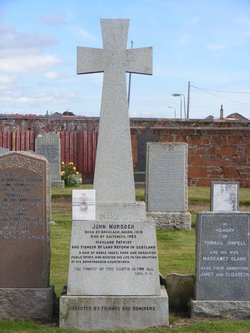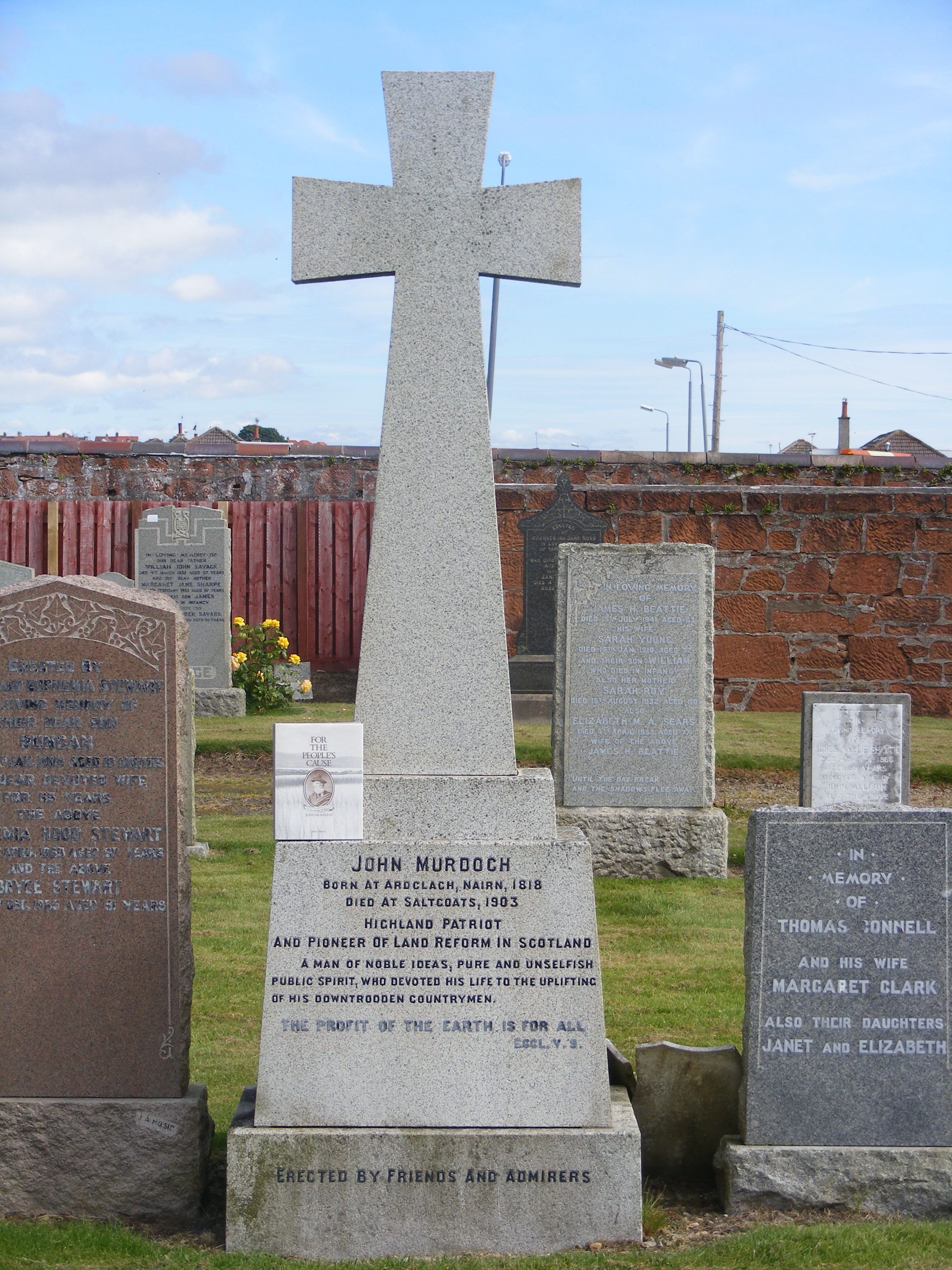His father was John Murdoch, and his mother was Mary Macpherson, the daughter of a sea captain: and both families had roots which stretched far back into Scottish history. In 1827 the family moved to the Island of Islay, and John Murdoch lived there until 1838. His ‘agricultural education' was inaugurated on ‘the little farm which had been selected and conferred on my father'. Moreover, he imbibed the rich folklore, customs and culture of the Highlanders among whom he lived and grew to manhood. In later life he was to become an associate of Michael Davitt, Henry George, Joseph Ashby, Patrick Ford, the editor of the New York Irish World, J. Shaw Maxwell, Keir Hardie, and other land and labour agitators.
The Highlander was published in Inverness between 1873 and 1882. It was a very radical paper in which Murdoch ‘advocated the cause of the people, and particularly the right of the Gaelic people to their native soil'. (Glasgow Weekly) Through The Highlander and Murdoch's personal intervention in disputes between crofters and landlords
During the by-election in Mid-Lanark in April 1888, John Murdoch, who was now seventy years old, campaigned on behalf of Keir Hardie. A few weeks later he took the lead, together with Hardie, in helping to initiate the Scottish Labour Party. This was probably the last major act of his political career, but he toured the southern counties of England with Joseph Ashby in 1891 on behalf of the English Land League. Then he settled down to complete the autobiography he had begun in 1889 and to observe in the Scottish Labour Party the alliance of Scottish land and labour reformers he had striven to create in 1884
He was an internationalist, as well as a patriot who identified himself with the struggles of ordinary people. He deserves a permanent niche in British labour history.
From John Murdoch by James D Young
His father was John Murdoch, and his mother was Mary Macpherson, the daughter of a sea captain: and both families had roots which stretched far back into Scottish history. In 1827 the family moved to the Island of Islay, and John Murdoch lived there until 1838. His ‘agricultural education' was inaugurated on ‘the little farm which had been selected and conferred on my father'. Moreover, he imbibed the rich folklore, customs and culture of the Highlanders among whom he lived and grew to manhood. In later life he was to become an associate of Michael Davitt, Henry George, Joseph Ashby, Patrick Ford, the editor of the New York Irish World, J. Shaw Maxwell, Keir Hardie, and other land and labour agitators.
The Highlander was published in Inverness between 1873 and 1882. It was a very radical paper in which Murdoch ‘advocated the cause of the people, and particularly the right of the Gaelic people to their native soil'. (Glasgow Weekly) Through The Highlander and Murdoch's personal intervention in disputes between crofters and landlords
During the by-election in Mid-Lanark in April 1888, John Murdoch, who was now seventy years old, campaigned on behalf of Keir Hardie. A few weeks later he took the lead, together with Hardie, in helping to initiate the Scottish Labour Party. This was probably the last major act of his political career, but he toured the southern counties of England with Joseph Ashby in 1891 on behalf of the English Land League. Then he settled down to complete the autobiography he had begun in 1889 and to observe in the Scottish Labour Party the alliance of Scottish land and labour reformers he had striven to create in 1884
He was an internationalist, as well as a patriot who identified himself with the struggles of ordinary people. He deserves a permanent niche in British labour history.
From John Murdoch by James D Young
Sponsored by Ancestry
Advertisement
Explore more
Sponsored by Ancestry
Advertisement


